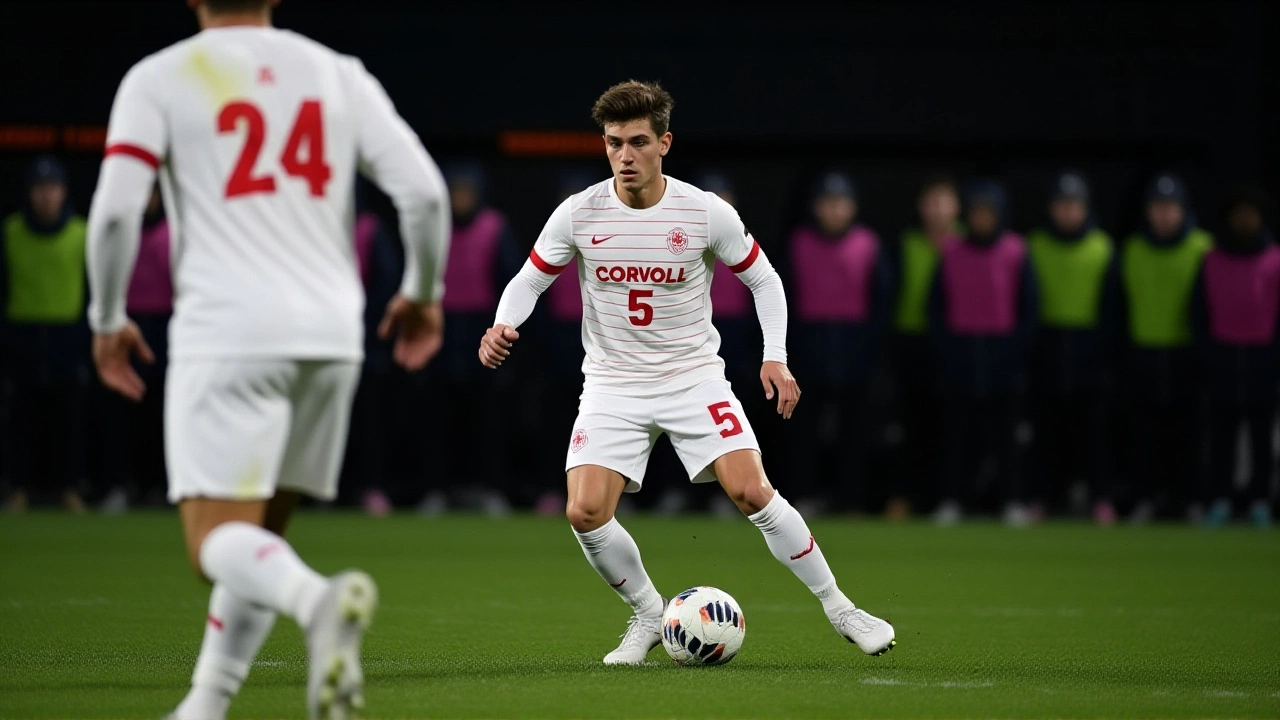
The University of Pennsylvania enters the 2025 season as the clear favorite in the Ivy League, landing the top spot in the preseason poll with 120 points and 10 first-place votes — a stunning validation of their 2024 regular-season dominance. The announcement, made on August 25, 2025 by Penn Athletics Director Don Felice from Philadelphia, comes with a heavy caveat: last year’s champions didn’t win the tournament. And that’s the real test.
Why Penn’s Preseason No. 1 Matters More Than It Looks
Let’s be clear — preseason polls are just guesses. But when a team wins the regular season, returns nearly all its starters, and gets 10 of 12 media votes as the top pick, it’s more than optimism. It’s expectation. The Penn Quakers finished 2024 with a 14-4-1 record, the best in the league, and were ranked 19th nationally by United Soccer Coaches. Yet they crashed out of the Ivy League Tournament in the semifinals — at home — to a lower-seeded team. That sting hasn’t faded.
Here’s the twist: last year’s tournament champ, Princeton University Tigers, tied for second in the preseason poll with Cornell University Big Red, both at 107 points. Princeton earned five first-place votes; Cornell got one. Both teams made deep NCAA runs in 2024 — Princeton as champions, Cornell as a second-round qualifier. Meanwhile, Brown University Bears round out the top four with 66 points, the projected cutoff for the postseason.
So why does this matter? Because the Ivy League doesn’t hand out automatic NCAA bids to the regular-season winner. It goes to the tournament champ. And for Penn, that’s the missing piece.
The Returners: Who’s Leading the Charge?
Coach Al Bagnoli (yes, that Bagnoli — the legendary former Penn coach who still haunts the sidelines in spirit) has a core group back that’s both experienced and dangerous. Leading the way: #10 Patrick Cayelli, the 5’10” senior midfielder who orchestrated 11 assists in 2024; #2 Connor Dawson, the 6’3” defensive rock; and #1 Phillip Falcon III, the junior goalkeeper who posted seven shutouts. Don’t sleep on #11 Erickson Sakalosky, the speedy senior winger who scored five goals last season and thrives on counterattacks.
They’ll open the season on August 29, 2025 at Rhodes Field in Philadelphia, hosting Loyola University Maryland at 7 p.m. ET. The stadium, tucked between campus buildings at 235 South 33rd Street, will be packed — not just for the opener, but because fans remember last year’s playoff heartbreak.
The Competition: Princeton, Cornell, and the Shadow of the NCAA
Princeton isn’t just a rival — they’re the blueprint. The Tigers won the 2024 Ivy League Tournament, then took down top-10 teams in the NCAA first round. Their 12-7 record last year wasn’t flashy, but it was efficient. Cornell, meanwhile, proved they belong on the national stage with a second-round NCAA appearance. Both teams have deeper rosters than last year and know how to win when it counts.
Nationally, Penn sits at No. 19. But the field is moving. University of Vermont — the reigning NCAA champion — is still #1. Maryland, Virginia, and Princeton are all ranked higher than Penn in the November 11 poll. That’s the invisible pressure: Penn can dominate the Ivy League, but if they don’t crack the top 20 nationally, they won’t get a favorable NCAA seed — even if they win the conference tournament.
The Bigger Picture: Ivy League Soccer’s Quiet Rise
The Ivy League doesn’t offer athletic scholarships. Yet in 2024, three teams made the NCAA Tournament — the most in a decade. This isn’t a conference of amateurs. It’s a breeding ground for disciplined, tactically sharp players who outwork, outthink, and outlast. Penn’s 2024 regular-season title was a statement. Now, they have to prove it wasn’t a fluke.
And here’s the quiet truth: the Ivy League is becoming a postseason threat again. In 2023, only one team made the NCAA field. In 2024, three. This year, with Penn, Princeton, and Cornell all loaded, expect at least three again. Maybe four. That’s not just good — it’s historic.
What’s Next? The Real Test Begins
October will tell the real story. Penn faces Princeton on October 11 in Princeton, New Jersey, and Cornell on October 25 in Ithaca, New York. Those are the games that matter. The poll? Just the starting line.
For the Quakers, the narrative has flipped. They’re no longer the underdog. They’re the target. And in a league where the tournament crown is the only one that counts, the pressure is on — not just to win, but to finally finish what they started.
Frequently Asked Questions
Why is Penn the favorite if they lost in last year’s tournament?
Preseason rankings reward regular-season performance, returning talent, and consistency. Penn went 14-4-1 in 2024, won the regular-season title, and brought back key players like goalkeeper Phillip Falcon III and midfielder Patrick Cayelli. Their tournament loss was a single-game upset — not a reflection of their overall strength. Media voters believe they’ve fixed the mental edge.
How does the Ivy League tournament selection work?
The top four teams in the final Ivy League standings qualify for the tournament, regardless of regular-season record. The top seed hosts the semifinals. The winner earns the conference’s automatic bid to the NCAA Tournament. Penn’s 2024 exit came as the No. 1 seed — they lost in the semis — proving regular-season success doesn’t guarantee postseason glory.
What’s the significance of Princeton and Cornell tying for second?
It signals a two-horse race for the title behind Penn. Princeton, the defending tournament champ, has the pedigree. Cornell, with its NCAA second-round run, has the depth. Their shared points suggest either could challenge Penn in the final stretch — especially if Penn stumbles in road games at Ithaca or Princeton.
How does Penn’s national ranking compare to their Ivy standing?
At No. 19 nationally, Penn is solid but not elite. Top NCAA contenders like Vermont (#1) and Maryland (#1) are far ahead. To earn a favorable NCAA seed, Penn must win the Ivy League tournament and likely beat a top-15 team in the process. Their preseason poll status is domestic; their national ranking is the real benchmark.
Are there any injury concerns heading into the season?
Penn’s official roster lists all key players healthy, including senior defender Oliver Pratt and junior midfielder Jack-Ryan Jeremiah. However, the team’s depth is untested beyond the starting XI. A key injury to goalkeeper Phillip Falcon III — who started all 19 games last season — could derail their title hopes. The coaching staff is keeping training loads monitored closely.
What’s the historical context of Penn’s men’s soccer program?
Penn has won six Ivy League tournament titles, the last in 2019. They’ve made the NCAA Tournament 11 times since 1980 — more than any other Ivy school. But since 2019, they’ve been stuck in the “almost” category: strong regular seasons, early tournament exits. This year’s team is the most complete since 2019 — and the most determined to break the cycle.


